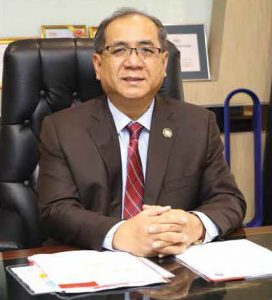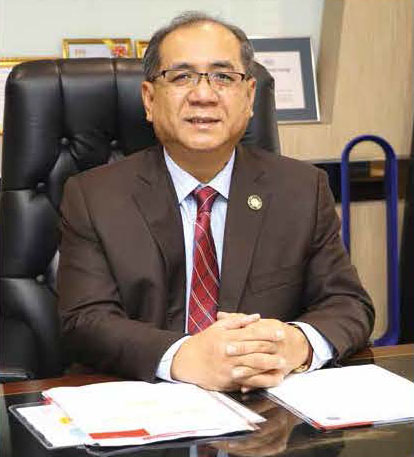
The world is facing unprecedented challenges since the Covid-19 pandemic became an everyday reality for its 7B+ citizens. Our country, in particular our nation of Sarawak, has been managing this crisis as best as we could and fortunately, we have been coping well in comparison with other countries. Our government did not delay in making the difficult decisions to implement tough measures that are needed to handle the first wave of the contagion and to flatten the curve of transmission. Although these measures brought difficulties in our daily lives, these were necessary to safeguard the health and safety of the people. We are now seeing that those countries that delayed taking these necessary tough measures, such as general lockdowns and closing of borders, are experiencing more staggering numbers of Covid-19 positive cases and deaths among their citizens which are bringing even more difficulties and hardships to the people.
Our government, knowing that the tough measures would bring about economic hardships to the people, also did not delay in providing the necessary financial and other assistance to our citizens through the various schemes such as the Bantuan Khas Sarawakku Sayang (BKSS), Bantuan Khas Sarawakku Sayang 2.0 (BKSS 2.0) and Bantuan Prihatian Nasional.
In all these schemes, the one underlying inspiration and motivation behind is the care and compassion for our people. We all remember how the Sarawak government led by YAB Datuk Patinggi Abang Abdul Rahman Zohari Tun Abang Openg launched the “Sarawakku Sayang” program last January. At that time, we didn’t know that the pandemic would soon be upon us. However, having already articulated the “Sarawakku Sayang” concept at that time, it became the one factor that will underpin all the Sarawak government policies, programs, initiatives and decisions that we had to make in urgency as we grappled with the aftermath of this pandemic.
The concept and ideas encapsulated in the “Sarawakku Sayang” program will easily resonate for all of us in the Sarawak Civil Service organization. When we choose the vocation of being a civil servant, there are unshakeable realities that we must accept as an integral part of our career DNA. These are:-
- We have special obligations to the people that we serve, even putting their needs ahead of our own.
- We are responsible for managing the resources entrusted to us by the people and ensure that these resources are only used to provide and deliver the services that meet the peoples’ needs.
- We must always be prepared to make important decisions that affect all aspects of the peoples’ lives even though those decisions are difficult to make. This is because the people have the right to expect their civil servants to function efficiently and with integrity and accountability.
In essence, we are all called to not just perfunctorily do our day-to-day tasks as set out in our job descriptions. The act of service that we are called to do emanates from a heart that genuinely wants the best for others.
This quality of “service from the heart” emanates from the values that we hold dear as a people. As Sarawakians, we have been brought up in what can be aptly called as “culture care”. The artist Makoto Fujimura, explains this well when he speaks about “culture care” as an act of generosity and compassion to our neighbors and culture.
During the nationwide Movement Control Order (MCO), we we required most of our citizens to stay home. However, many of us in the civil service corps had to be out there in the frontlines as health workers, security and safety enforcers, engineers and technical officers, sanitation workers and many others providing backend services such as IT personnel, administrative staff, data analysts to ensure that the essential services that our people needed remained available. We have seen how care and compassion were shown by our civil servants who went beyond their duties and faced difficulties in order to serve the people well. The dedication they have shown is truly a manifestation of that “service from the heart” quality of a dedicated civil servant.
The people need a stable civil service organization that continues to work round the clock in good times and bad in order to safeguard their welfare and provide them with the services they need. In that respect, we did not disappoint because we did our best to make the lives of the people a little less burdensome and troubling in this challenging situation.
In so doing, we have leveled up the degree of trust in our society for our government and among each other. It is essential for our communities to be able to trust and have assurance in the reliability of the leaders and our civil service decision-making process and implementing capacity.






